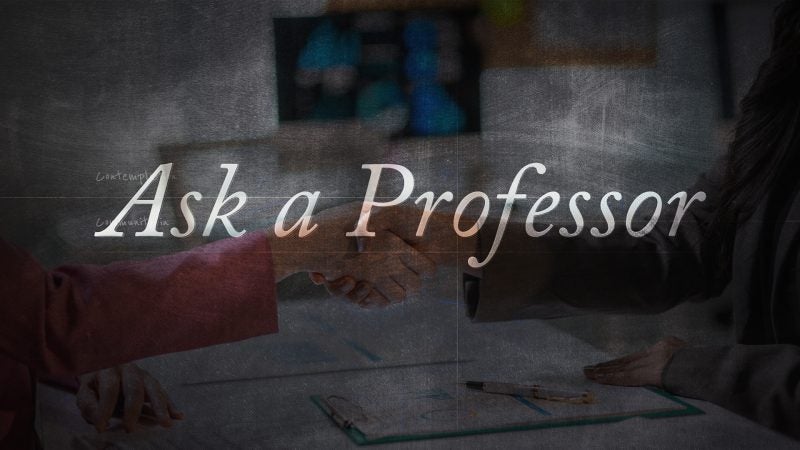Gratitude may not always be a good thing — at least at the negotiating table.
Those are the findings in a soon-to-be-published study by Jeremy Yip, an assistant professor at the McDonough School of Business, and his co-authors.
“How can gratitude sometimes be dysfunctional? It is something that we tend to express, maybe out of politeness, maybe out of reciprocity,” Yip said. “But is there a dark side to gratitude and how might that relate to negotiations?”
Yip teaches classes on negotiating and leadership in the McDonough School of Business and studies the psychology of emotions and “trash-talking” in negotiations and organizational behavior. He and his co-authors argue that in competitive contexts — such as in job negotiations, car dealerships or Facebook Marketplace sales — people who express gratitude are more likely to be taken advantage of.
We asked Yip why expressing gratitude can backfire and for his masterclass tips on how to navigate any negotiation.
Ask a Professor: The Psychology of Gratitude and How to Negotiate
Why is gratitude not always a good emotion to express?
The prevailing assumption about gratitude is that it’s functional and beneficial. It serves as a social lubricant to reduce interpersonal friction that we encounter in our daily lives. That’s helpful when you think about these cooperative relationships when you have to work together.
But if we express gratitude in situations like competitive situations where it might not be expected and might even be exploited, how can that be detrimental to the expressor? What we found in general across different experiments was that people who are dealing with a grateful counterpart are more likely to behave in a more self-interested manner. They make more aggressive offers in negotiations compared to when they interact with a neutral counterpart.
In what ways can gratitude be beneficial?
What I think is important about this is not to say to stop expressing gratitude. We have research that shows when you do express gratitude in cooperative relationships, it’s actually very beneficial and promotes pro-social behavior on behalf of the perceiver. It’s when we find ourselves in these more zero-sum situations where we don’t know one another and are competing for scarce resources that expressing gratitude may be exploited.




